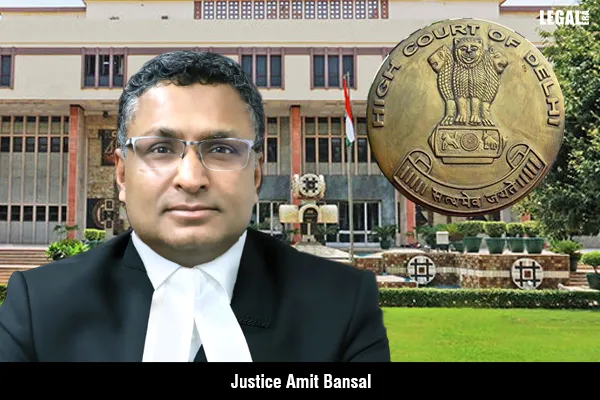Delhi High Court: Sporadic Use Of Trademark In India Insufficient To Establish Reputation And Goodwill
The Delhi High Court recently ruled that sporadic use of a trademark in India cannot be considered sufficient evidence;

Delhi High Court: Sporadic Use Of Trademark In India Insufficient To Establish Reputation And Goodwill
The Delhi High Court recently ruled that sporadic use of a trademark in India cannot be considered sufficient evidence to establish that the trademark has acquired reputation and goodwill in the country.
Justice Amit Bansal, also clarified that being an internationally well-known mark does not automatically imply that its reputation and goodwill have spilled over into India.
The case involved a trademark infringement suit filed by two companies incorporated in the Cayman Islands and Singapore. These plaintiff-companies, which are investment advisers for funds investing in equities and credit, claimed to have secured various registrations for the 'BROAD PEAK' trademark worldwide. They further asserted that they had been providing investment advisory services under the 'BROAD PEAK' name in India since 2008, although their actual use documents from that period were not available.
The plaintiffs applied for registration of the 'BROAD PEAK' trademark in India on a "proposed to be used" basis. They argued that the defendant, 'Broad Peak Capital Advisors LLP,' which has been using the impugned mark since 2016, infringed upon their trademark. The plaintiffs objected when the defendant applied for registration of the 'BROAD PEAK' mark, but the Trade Marks Registry granted the defendant's application, as the plaintiffs had not demonstrated actual use of the mark in India.
In considering the case, the Court emphasized that the plaintiffs’ sporadic use of the mark in India did not equate to acquiring the mark’s reputation and goodwill in the country. Referring to the Supreme Court's ruling in Toyota Jidosha Kabushiki Kaisha vs. Prius Auto Industries (2018), the Court reiterated the territoriality principle, stating that international reputation alone cannot establish goodwill in India without sufficient evidence.
The Court also noted that the plaintiffs failed to prove that the defendants were aware of their mark when adopting the impugned name. It was concluded that the defendants' adoption of the mark was bona fide, and the use of the mark was considered honest and concurrent under Section 12 of the Trade Marks Act.
Additionally, the Court observed that the plaintiffs and defendants operate in different sectors. While the plaintiffs are involved in investment management for Indian-listed companies, the defendants focus on private equity investments in unlisted companies. The Court further remarked that given the sophistication of their clients, confusion between the two services was highly unlikely.
Ultimately, the Court dismissed the plaintiffs' application for an interim injunction, finding that they failed to establish a prima facie case.


